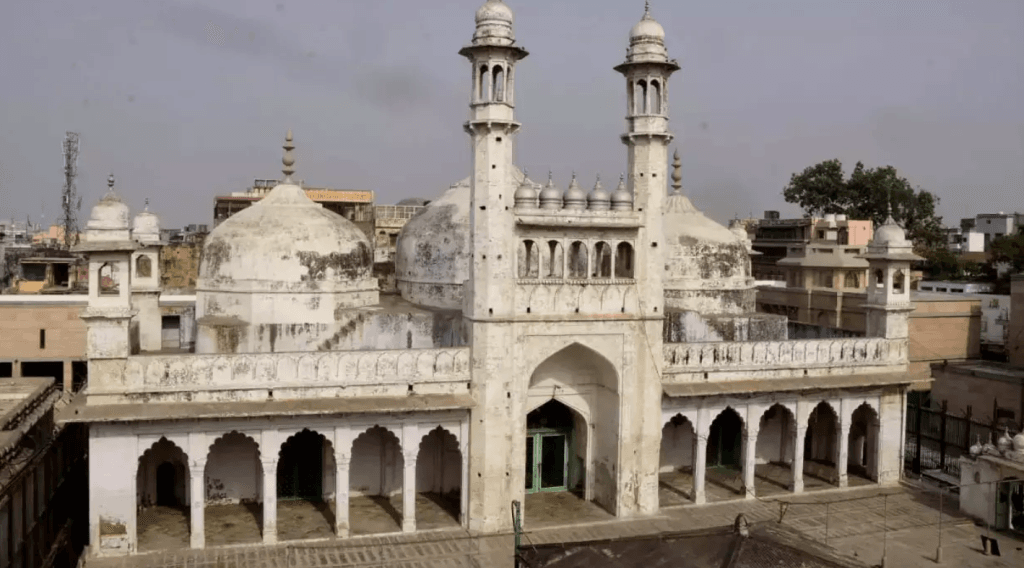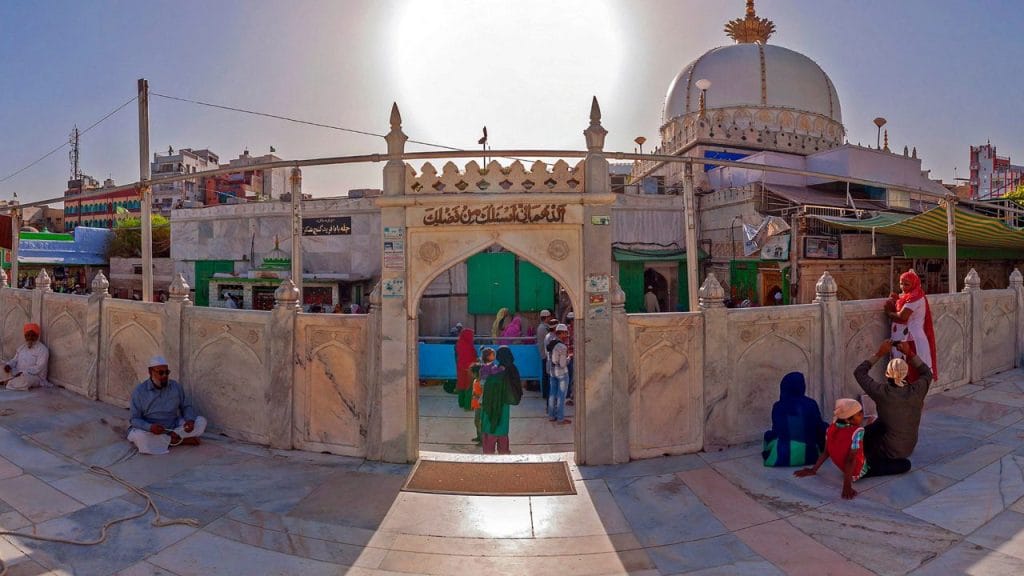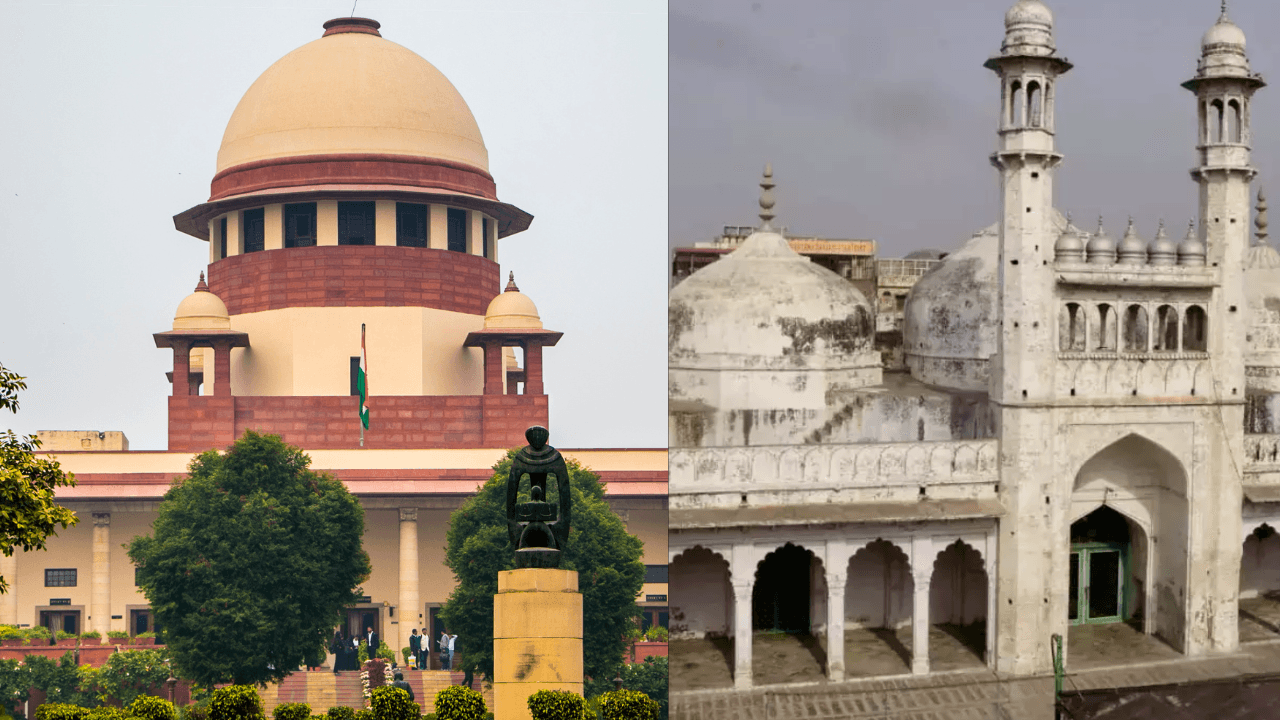On December 12, 2024, the Supreme Court of India issued a landmark ruling prohibiting all trial courts from filing new petitions challenging the ownership and title of any place of worship or demanding surveys of contested religious sites. This interim order came as the Supreme Court examined various petitions challenging the constitutionality of the Places of Worship (Special Provisions) Act, 1991.
The Act forbids changing the religious character of places of worship as they were on August 15, 1947, with the lone exception of the Ram Janmabhoomi-Babri Masjid issue. The order, delivered by a special bench consisting of Chief Justice Sanjiv Khanna, Justices PV Sanjay Kumar, and KV Viswanathan, intended to maintain the status quo and avoid escalating sectarian and legal problems. At the same time, the court will consider whether the legislation intended to protect the status of religious sites (as they existed in 1947) should be continued or repealed. The bench stated: “Our direction includes that no other court shall pass any specific directions for surveys, and no effective interim or final order shall be passed until this court concludes the case.” This decision is a crucial attempt to balance India’s secular framework with emerging socio-political realities.
Background of the Act
The Places of Worship (Special Provisions) Act, 1991, was introduced by the Congress government under Prime Minister P. V. Narasimha Rao at a time of heightened communal tensions during the peak of the Ram Janmabhoomi movement. The legislation was part of the Congress’s 1991 election manifesto and was introduced in the Lok Sabha by the then Home Minister S. B. Chavan. Its primary objective was to prohibit the conversion of places of worship and to ensure the maintenance of their religious character as it existed on August 15, 1947. The Act aimed to:
- Prevent communal violence by freezing the status of all religious sites as they existed on August 15, 1947.
- Uphold India’s secular framework by prohibiting conversion of places of worship.
Announced in response to mounting public emotions around the Babri Masjid-Ram Janmabhoomi conflict, the law guaranteed similar issues did not reach other holy structures.
Broader context of the Act and the Supreme Court’s intervention
In recent times, there has been a resurgence of discussions over the religious legitimacy of old monuments and sites, and the debate from the Gyanvapi Mosque has taken the front stage. It is strictly forbidden under the Places of Worship Act to make any changes to the “religious character” of any structure as it stood on August 15, 1947.

However, remarks made by former Chief Justice DY Chandrachud in 2022 have created a legal ambiguity, implying that courts might possess the power to scrutinise the “nature” of these sites, thereby igniting a renewed legal and public debate.
In August 2021, five Hindu worshippers filed a petition in a Varanasi court asking for permission to pray regularly at the Gyanvapi mosque, claiming Hindu idols were there. The court cases grew quickly. This resulted in the Varanasi District Court in July 2023 asking the Archaeological Survey of India (ASI) to look into whether the mosque was built atop a historic Hindu temple. The Anjuman Intezamia Masjid, who looked after the mosque, objected to the directive, claiming it breached the 1991 Places of Worship Act, therefore preserving the status of religious places as they were at the time of India’s independence.
Unlike the Babri Masjid case, the Gyanvapi case transcends simple historical backdrops or legal considerations. In light of all this, the Supreme Court lately stepped in and put a stop to any further surveys or legal challenges related to religious sites. This was a significant shift. The Court’s decision came at a time when earlier rulings had stoked tensions, especially around sites like Gyanvapi. By freezing the legal proceedings, the Court is trying to preserve the secular nature of India and bring some relief to communities, particularly Muslims whose religious sites have been caught in legal battles.
The Court’s decision demonstrates a comprehension that the influence of the Hindutva on these legal issues goes beyond only religion; it also relates to the redefining of the national identity. By halting these processes, the Supreme Court aims to protect the integrity of the Places of Worship Act and bring about balance.
Implications of revoking the Act
If the Places of Worship Act of 1991 is repealed, India’s social, legal, and communal structures will suffer significantly and widely. The Act now serves as legal protection for houses of worship, preserving their religious identity as it was on August 15, 1947. Without this protection, arguments over the historical relevance of religious structures may resurface, resulting in legal claims and court flooding. Revoking the Act jeopardises public order and social cohesion by rekindling sectarian emotions reminiscent of the carnage that followed the Babri Masjid’s demolition. It will also challenge the freedom of religion provided under Article 25, undermining India’s fundamental ideas of secularism and religious plurality.

Moreover, the lack of such laws might politicise holy places and promote their usage as a means of sectarian polarisation and political advantage. The disputes over these sites are likely to sour interfaith relations, damage trust, and jeopardise the country’s delicate social fabric. Withdrawing the Act risks exacerbating long-standing problems, separating communities, and weakening the integrity and unity of India’s diverse people.
Pending similar cases in Indian Courts
The Supreme Court’s latest ruling has important consequences for continuing conflicts over religious sites around the country. Prominent cases include:
1. Gyanvapi Mosque, Varanasi, UP
A lawsuit alleging that the Gyanvapi Mosque was constructed above the Kashi Vishwanath temple was filed in 1991. Later in 2021, five Hindu ladies filed a petition asking to be allowed to honour idols within the mosque. The Varanasi District Court mandated an ASI assessment in 2023 to verify the suit’s validity, and finally, in 2024, the devotees were allowed to worship in the basement of the temple.
2. Teele Wali Masjid, Lucknow, UP
A petition was filed in 2013 about Teele Wali Masjid, claiming that it was built after Mughal ruler Aurangazeb destroyed a Hindu temple at that site. The case is still pending before the Allahabad High Court. In addition, another petition seeking access to the mosque for prayers is under consideration by a civil judge in Lucknow.
3. Shamsi Jama Masjid, Budaun, UP
In 2022, a suit was filed by the Akhil Bharat Hindu Mahasabha alleging that the mosque stands on the site of the Neelkanth Mahadev temple. The court is currently deliberating on the suit’s maintainability, and a request for a survey is under review in Budaun.
4. Malali Juma Masjid, Mangalore, Karnataka
The Vishwa Hindu Parishad filed a lawsuit in 2022 after uncovering a temple-like structure beneath the mosque during renovations, asking for a site assessment. The Karnataka High Court has ordered the trial court to first decide on the suit’s legal complicity before proceeding.
5. Kamal Moula Mosque at Bhojshala Complex, Dhar, MP
The Hindu Front for Justice filed a petition in 2022 challenging a 2003 decision allowing Muslims to pray inside Bhojshala on Fridays. The Madhya Pradesh High Court directed a scientific survey in March 2024, while the Supreme Court has prohibited any excavation that would alter the site’s character.
6. Shahi Idgah Mosque, Mathura, UP
Multiple lawsuits have been filed since 2020 to argue the mosque was built at Lord Krishna’s birthplace. The 1968 agreement is also questioned, which allowed both the mosque and a new temple to co-exist. The Allahabad High Court took control of the cases in May 2023 and upheld the suits’ maintainability in August 2024. The mosque committee has filed an appeal with the Supreme Court.
7. Shahi Jama Masjid, Sambhal, UP
The Hindu side claims that the mosque stands on top of the Shri Hari Har Temple, which was devoted to Lord Kalki, according to a lawsuit filed in 2023. When the Civil Judge issued the survey order, rioting broke out in Sambhal. The Supreme Court has put a temporary hold on the proceedings while the Allahabad High Court examines the concerns.
8. Dargah Sharif, Ajmer, Rajasthan
Vishnu Gupta filed a suit in September 2024, alleging evidence of a Shiva temple under the Ajmer Sharif Dargah. Notices were issued by a Civil Judge in November 2024 to the Union Ministry of Minority Affairs, ASI, and the Dargah Committee.
9. Atala Mosque, Jaunpur, UP
In a 2024 lawsuit filed by the Swaraj Vahini Association, claiming that an old temple to Atala Devi was located on the site of the mosque. Ordering a survey, the district court will hear a petition for security during the process. The Allahabad High Court is considering a challenge to the suit’s registration.
10. Quwwat-ul-Islam Mosque, Qutub Minar Complex, Delhi
A 2020 suit seeks the restoration of Hindu and Jain deities inside the mosque, claiming that 27 temples were destroyed during its construction. Reversing the lawsuit in 2021, a civil judge cited the Places of Worship Act, 1991. There is an appeal against this ruling waiting in a district court.
The Supreme Court’s involvement shows a vital attempt to stop the growing public and judicial disputes over Indian holy sites. The Court wishes to maintain peace, follow the spirit of the Places of Worship Act of 1991, and stop all further litigations and surveys, thereby preventing additional division of society. The Act is still very essential if we are to preserve India’s secular ideals and prohibit the resurgence of past disputes harming national unity. The court’s capacity to strike a balance between constitutional ideals and developing socio-political issues ahead would help to ensure unity and fairness in the country.
About the author(s)
She is a Research Scholar, currently dedicated to pursuing her doctoral studies in the field of Political Science and International Relations. With more than ten years of hands-on experience across various media-related domains, she has established herself as a seasoned Media Professional.




